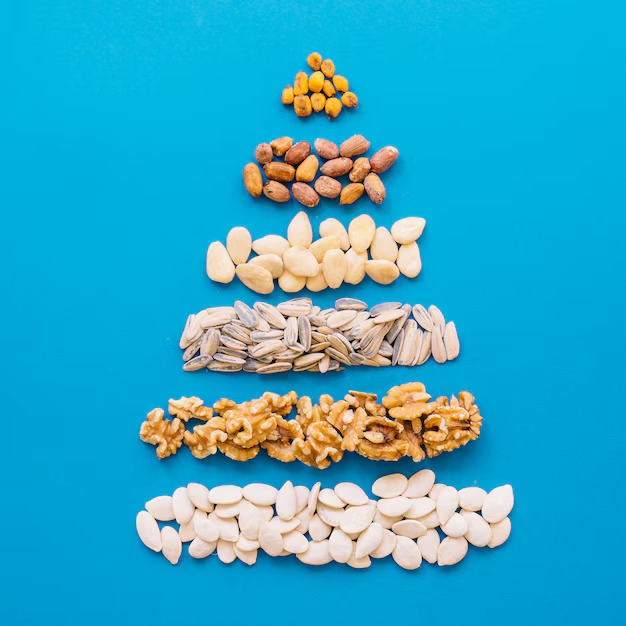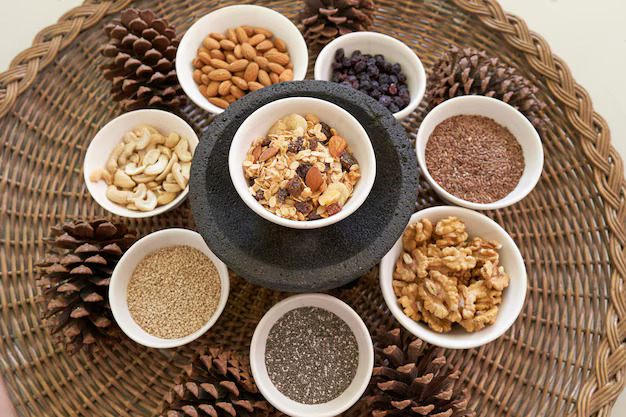6 Healthy Seeds For Eating
In the pursuit of optimal health and performance, what you fuel your body with plays a monumental role. While many focus on fruits, vegetables, lean proteins, and whole grains, there is a group of nutrient-dense foods often overlooked—seeds.
These tiny nutritional powerhouses pack an impressive punch of vitamins, minerals, healthy fats, fiber, and antioxidants, making them essential additions to a healthy diet.
At Sport and Medical Sciences, we understand the value of holistic nutrition for athletic performance, recovery, and long-term wellness. Seeds are not only excellent for your health but also incredibly versatile and easy to incorporate into your daily meals.
In this comprehensive guide, we’ll explore 6 healthy seeds for eating that can transform your diet, support your fitness goals, and enhance overall well-being.

Why Seeds Are a Superfood Worth Adding to Your Diet
Seeds have been a staple of human nutrition for millennia. Their dense nutrient profile provides a wealth of benefits:
- Rich in Essential Fatty Acids: Many seeds, like flax and chia, contain omega-3 fatty acids crucial for heart and brain health.
- High in Protein and Fiber: Seeds provide plant-based protein and fiber, promoting satiety and digestive health.
- Loaded with Micronutrients: Seeds offer important vitamins (e.g., vitamin E), minerals (magnesium, zinc, selenium), and antioxidants that fight inflammation and oxidative stress.
- Support Heart Health: Regular seed consumption is linked to reduced cholesterol and improved cardiovascular function.
- Aid in Weight Management: Their fiber and protein content help control appetite and regulate blood sugar.
For athletes and fitness enthusiasts, seeds are a natural way to support endurance, recovery, muscle repair, and immune function. Now, let’s dive into the six healthiest seeds to incorporate into your eating plan.
1. Chia Seeds: The Hydrating Omega-3 Boost
Nutritional Profile:
- Calories (per 1 oz/28g): ~137
- Protein: 4.4g
- Fiber: 10.6g
- Fat: 8.6g (mostly omega-3 ALA)
- Calcium: 18% DV
- Magnesium: 30% DV
Health Benefits:
Chia seeds are tiny black or white seeds native to Central America. They’re renowned for their ability to absorb water—up to 13 times their weight—forming a gel-like substance that helps keep you hydrated and full longer.
Their omega-3 alpha-linolenic acid (ALA) content supports heart and brain health, reduces inflammation, and enhances recovery post-exercise. The fiber promotes gut health and steady blood sugar levels, critical for sustained energy during workouts.
How to Use:
Sprinkle chia seeds on yogurt, oatmeal, smoothies, or soak them overnight to make chia pudding. Their mild, nutty flavor blends well without overpowering dishes.
2. Flaxseeds: The Fiber-Rich Hormone Balancer
Nutritional Profile:
- Calories (per 1 oz/28g): ~150
- Protein: 5.2g
- Fiber: 7.7g
- Fat: 13g (omega-3 ALA)
- Lignans: high plant compounds with antioxidant properties
Health Benefits:
Flaxseeds have been heralded for their role in cardiovascular health, digestion, and hormone regulation. The high fiber content supports bowel regularity and helps lower cholesterol.
Flaxseeds are a rich source of lignans, compounds that may influence estrogen metabolism and offer anti-cancer effects. Their omega-3 fats reduce systemic inflammation, benefiting joint and muscle recovery.
How to Use:
Flaxseeds should be ground to unlock their nutrients since whole seeds pass through the digestive tract intact. Add ground flaxseed to smoothies, baked goods, or sprinkle over salads.
3. Pumpkin Seeds: The Zinc Powerhouse for Immunity and Muscle
Nutritional Profile:
- Calories (per 1 oz/28g): ~151
- Protein: 7g
- Fiber: 1.1g
- Fat: 13g (mostly unsaturated)
- Zinc: 2.2 mg (20% DV)
- Magnesium: 37% DV
Health Benefits:
Pumpkin seeds, also known as pepitas, are rich in zinc—a mineral vital for immune function, wound healing, and protein synthesis. Zinc plays a key role in muscle repair, making pumpkin seeds an excellent snack for athletes.
Their magnesium content supports muscle relaxation and nerve function, while antioxidants combat free radicals generated during intense exercise.
How to Use:
Enjoy pumpkin seeds roasted as a snack, mixed into granola, or sprinkled on salads and soups. Their crunchy texture and nutty flavor are highly versatile.
4. Sunflower Seeds: The Vitamin E and Heart Health Booster
Nutritional Profile:
- Calories (per 1 oz/28g): ~165
- Protein: 5.5g
- Fiber: 3g
- Fat: 14g (mostly polyunsaturated)
- Vitamin E: 37% DV
- Selenium: 28% DV
Health Benefits:
Sunflower seeds are an excellent source of vitamin E, a potent antioxidant that protects cells from oxidative damage and supports skin health. They also contain selenium, which contributes to thyroid function and immunity.
Their healthy fats help reduce LDL cholesterol and improve heart health markers. The protein content makes them a great plant-based energy source.
How to Use:
Add sunflower seeds to trail mixes, salads, or use sunflower seed butter as a nutritious alternative to peanut butter.
5. Sesame Seeds: The Mineral-Rich Bone Supporter
Nutritional Profile:
- Calories (per 1 oz/28g): ~160
- Protein: 5g
- Fiber: 4g
- Fat: 14g (mostly unsaturated)
- Calcium: 28% DV
- Iron: 23% DV
- Magnesium: 25% DV
Health Benefits:
Sesame seeds are tiny but packed with minerals that support bone health, including calcium, magnesium, and phosphorus. This makes them beneficial for athletes who put stress on bones and joints.
They also contain sesamin and sesamolin, unique antioxidants that may help lower cholesterol and protect liver health.
How to Use:
Sprinkle toasted sesame seeds on stir-fries, salads, or incorporate them into sauces like tahini—a creamy sesame seed paste popular in Mediterranean cuisine.
6. Hemp Seeds: The Complete Plant Protein for Muscle Repair
Nutritional Profile:
- Calories (per 3 tbsp/30g): ~166
- Protein: 10g (complete protein with all 9 essential amino acids)
- Fiber: 1g
- Fat: 14g (omega-3 and omega-6 in ideal ratio)
- Magnesium: 45% DV
Health Benefits:
Hemp seeds offer one of the highest quality plant-based proteins, containing all essential amino acids required for muscle synthesis and recovery. This makes them ideal for vegetarians, vegans, and anyone seeking a natural protein boost.
Their balanced omega-3 to omega-6 fatty acid ratio supports heart and brain health, while magnesium aids in muscle function and energy production.
How to Use:
Sprinkle hemp seeds on smoothies, oatmeal, or mix into salads and baked goods for a nutty flavor and nutritional upgrade.
How to Incorporate Seeds into Your Daily Routine
Integrating these healthy seeds into your diet can be simple and delicious:
- Breakfast Boost: Add chia, flax, or hemp seeds to your morning smoothie, oatmeal, or yogurt.
- Snack Smart: Enjoy roasted pumpkin or sunflower seeds as a quick energy snack.
- Salad Upgrade: Top salads with sesame, pumpkin, or sunflower seeds for crunch and nutrition.
- Baking Enhancer: Incorporate ground flaxseeds or hemp seeds into muffins, breads, and energy bars.
- Homemade Nut Butter: Try tahini or sunflower seed butter as alternatives to traditional nut butters.

Who Should Be Cautious?
While seeds are generally safe and healthy, some considerations include:
- Allergies: Seeds like sesame and sunflower can trigger allergic reactions in sensitive individuals.
- Calorie Dense: Seeds are energy-dense, so mindful portion control is key if you are watching calorie intake.
- Digestive Issues: For some, high fiber content might cause bloating or gas initially; start with small amounts.
- Medication Interactions: Seeds high in vitamin K (like pumpkin seeds) may interact with blood thinners.
Final Thoughts: Tiny Seeds, Tremendous Health Benefits
Adding a variety of seeds to your diet is a simple yet effective way to enhance nutrition, boost athletic performance, support recovery, and protect against chronic disease. Each seed offers a unique profile of nutrients, making a diverse intake ideal.
At Sport and Medical Sciences, we encourage integrating these six healthy seeds—chia, flax, pumpkin, sunflower, sesame, and hemp—into your meals for a natural, nutrient-packed boost that supports your health journey.
References
- https://fdc.nal.usda.gov/
- https://www.hsph.harvard.edu/nutritionsource/food-features/seeds/
- https://www.tandfonline.com/doi/full/10.1080/07315724.2014.926349
- https://www.mdpi.com/2072-6643/10/9/1346
- https://academic.oup.com/ajcn/article/97/6/1386/4576955
- https://www.frontiersin.org/articles/10.3389/fnut.2021.679270/full